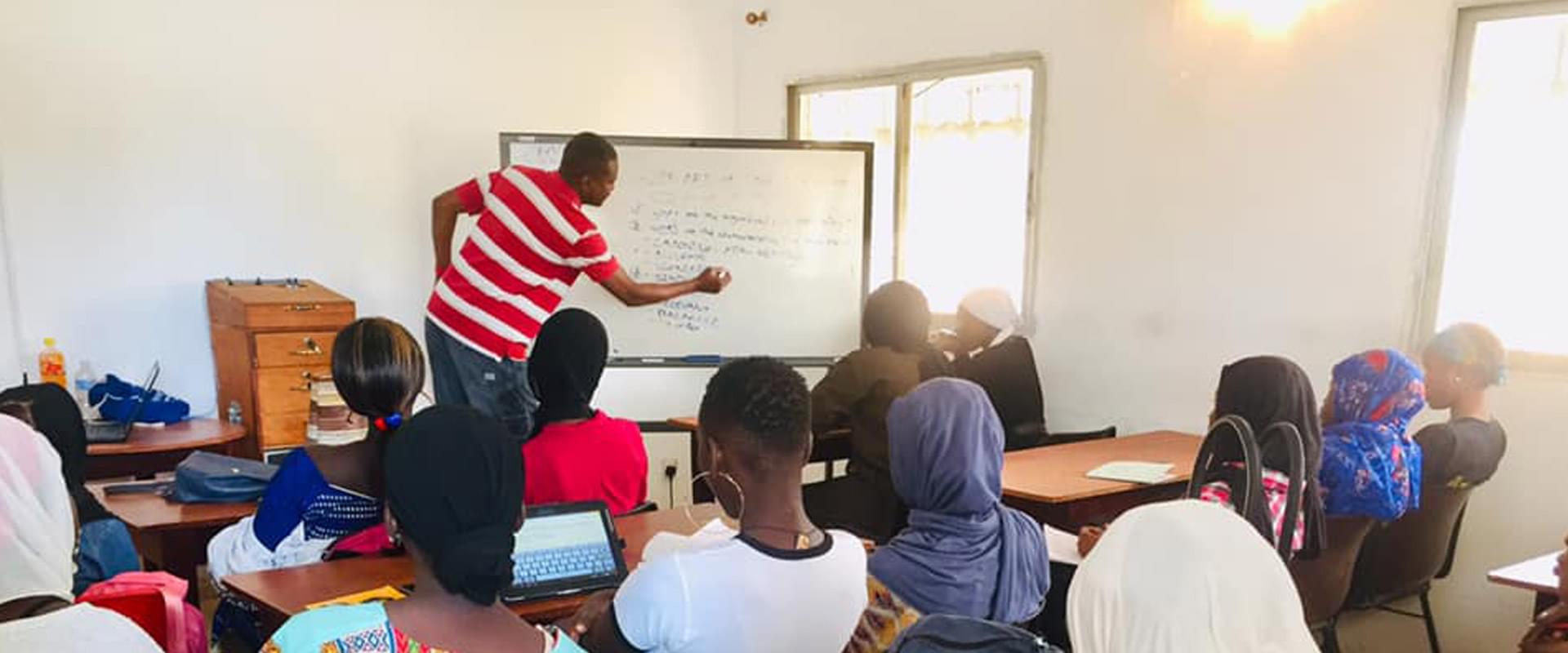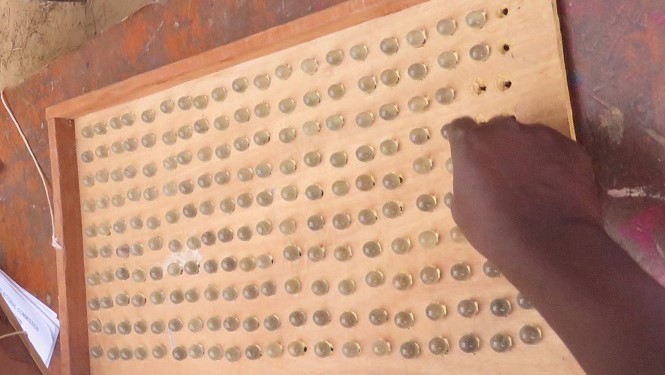
Jan 13, 2022 9:33 AM | Article By: Jarra Cham

Supporters of President-elect Barrow celebrate his victory in Banjul on December 5, 2021 (Photo: AP)
The Gambia is seeing a significant rise in the number of new Covid-19 cases, though the number of covid-related deaths have significantly reduced.
Experts have warned that the relaxed nature of observing covid-19 safety protocols before, during and after the presidential elections may are the factor behind the increase in the number of new infections.
Massive political rallies were held across the country in November, ahead of the December 4 election, and thereafter, gatherings that are more public were held with little or no covid safety measures.
According to health experts, the trend is expected to continue with massive political rallies expected ahead of the parliamentary elections in April this year.
It could be recalled that when covid-19 was discovered in the country in March 2020, all public gatherings were suspended to prevent the spread of disease but it is not practised now.
The national situational reports from 1 November 2021 to December 16 indicated that 11, 426 new tests were carried out, 80 new cases, 36 recoveries, and 2 deaths were recorded in the Gambia. As of 1 November, the Gambia registered 9, 973 total confirmed cases, 14 active cases, 9, 618 recoveries, 1 new death, and 341 total confirmed deaths.
However, as of 31 December 2021, 206 new cases were registered as the fourth wave of covid infections kicked in.
Since then, a record 952 new cases have been reported by the Ministry of Health between the 1st and 8th of January 2022.
Following the first positive covid case on 17 March 2020, President Adama Barrow-led government suspended all public gatherings; temporarily closed educational institutions and houses of worship; reduced the normal capacity of commercial vehicles and reduced the operational hours of markets.
However, at some point in 2020, most of the COVID-19 regulations such as the ban on public gatherings was lifted due to minimised cases; but later in 2021, the Gambia experienced a second wave of the deadly disease. Despite that, public gatherings such as political rallies continued to be held. Despite the low records, Health authorities expect another wave in January 2022.

In a Foroyaa newspaper report, the Director of Health Services at the Ministry of Health said on 30 November 2021, that the Gambia is expecting another wave of Covid-19 in January 2022.
Gibril Gando Baldeh, senior risk communication and community engagement at health communication unit, Directorate of Health Promotion and Education officer at Ministry of Health (MOH) said the Gambia has just entered its fourth wave of the pandemic and the ministry is aware of the threat, as there is already a sharp rise in cases.
“This January, we have seen a sharp rise in cases. Meaning, from three to two (cases) which we were used to reporting in the beginning of December 2021… but coming one month down, we have started seeing a rapid rise in cases and this is alarming,” he expressed.
In fighting other covid-19 variants, he said there is still need to use the same strategies that were used before such as the social distancing, hand washing, wearing of face mask, amongst others, to prevent the spread of the virus.
However, Baldeh further said: “If the new (fourth) wave is similar to the first wave where we had almost hundred deaths in one month, more than five thousand cases in three months, it would force us to go in to more strict measures and ensuring that anybody who goes against these regulations would be dealt with according to law.”
He added that it is obligatory to wear a facemask and adhere to covid-19 measures. He urged everyone to adhere to COVID-19 safety measures and take the jab to prevent widespread the spread of the virus.
In a recent publication by the Point newspaper, Omar Sey, former minister of Health of The Gambia said if preventive measures are not put in place in political rallies, more COVID-19 cases could be registered. He justified that overcrowding is one of the factors of spreading the virus among people.
“We all know that one thing that spreads the disease is overcrowding because someone may have the virus without symptoms and the person would be shouting while droplets coming from his or her mouth. This is the danger we have because some people do not know their health status,” he said.
The former health minister said political rallies cannot be stopped in a year of election, but there is a need for political leaders to work with public health officials at the grassroots to make sure COVID-19 safety precautions are adhered to at all political rallies.
He said political leaders should have containers of water with hand sanitizers for supporters at entrances of all political rallies and encourage their supporters to wear face masks properly and regularly to avoid spreading the disease.
“The most difficult thing is social distance but they have to be encouraged to distance and avoid hand shaking. That can help in containing the virus,” he advised.

Mr. Sey, who was the health minister of The Gambia when Ebola knocked some West African countries, advised the ministry through public health officials to use risk communication, community engagement and involvement strategy in every region.
“Let politicians work with public health officials at the regional level to put health measures in place,” he told The Point.
He advised the public to adhere to the Ministry of Health and World Health Organization recommendations and to take the COVID-19 vaccine.
Meanwhile, a young feminist leader Amanita Jaiteh said women can minimize physical activities and always wear face masks to protect themselves.
She encouraged women to participate in online campaigns on digital platforms when they have the access. The young feminist added that for women and children to be protected during this time, there is a need to invest in personal protective equipment for the women and girls by the government.
Red Cross volunteers stretching a covid-19 corpse for burial in The Gambia (Photo: The Chronicle, The Gambia)
“Political parties can consider hosting rallies in smaller groups at different intervals...,” she suggested.
Jaiteh urged the awareness of women and girls to be raised about the dangers of the covid-19 pandemic to stay alert.
Comments (0)
87 Likes
Leave your thought here
Your email address will not be published. Required fields are marked *